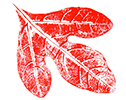
During the late summer and early fall, wildflowers such as goldenrods, thoroughworts, ironweeds, asters, and many others turn roadsides and fields into a pollinator oasis. Several of our butterfly species in the eastern U.S. migrate for the winter and rely on those flowers to provide them with the energy needed for their migration. Other species of butterflies need the nectar to fuel their last mating flights and egg laying activities. Bees rely on the pollen for raising brood and the nectar for fueling the activities of the adults. Honey bees also store some of the nectar as honey to eat during the winter.
However, late summer and early fall are also traditional times for mowing fields and other open areas which eliminates this valuable food source. Simply waiting until after the first killing frost has occurred before mowing those locations will allow pollinators to take advantage of the flowers at a time when they are making their final preparations for winter.

This article was part of Shannon’s original Kentucky Pollinators and Backyard Wildlife blog which evolved into the blog for Backyard Ecology.

Backyard Ecology: Exploring Nature in Your Backyard
Nature isn’t just “out there.” It’s all around us, including right outside our doors. Hi, my name is Shannon Trimboli, and I am the host of Backyard Ecology. I live in southcentral Kentucky and am a wildlife biologist, educator, author, beekeeper, and owner of a nursery specializing in plants for pollinators and wildlife conservation. I invite you to join me as we ignite our curiosity and natural wonder, explore our yards and communities, and improve our local pollinator and wildlife habitat. Learn more or subscribe to my email list at www.backyardecology.net.

Leave a Reply